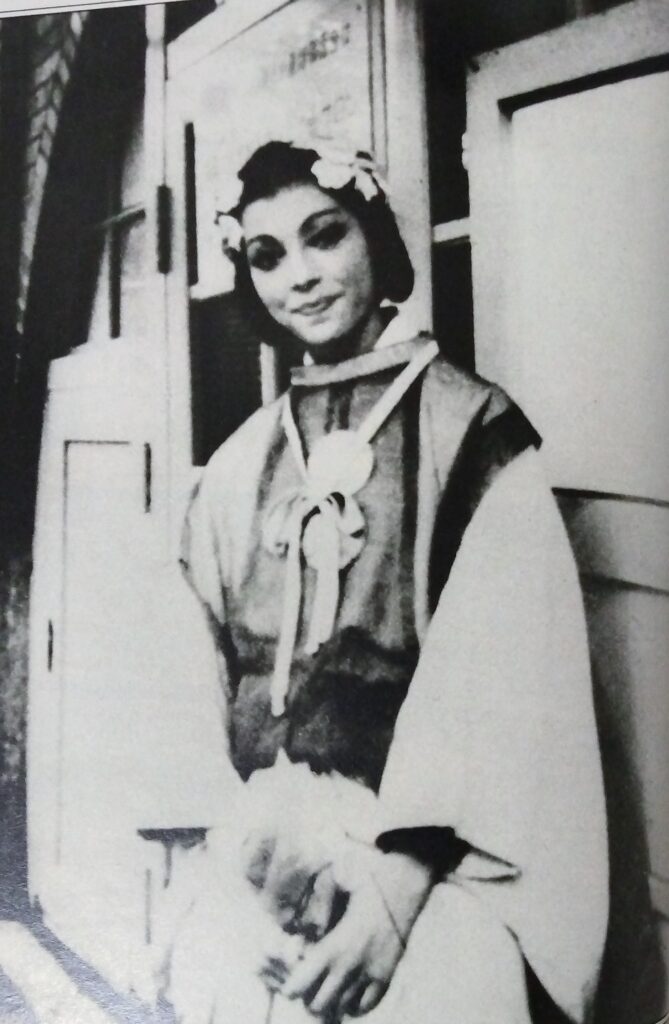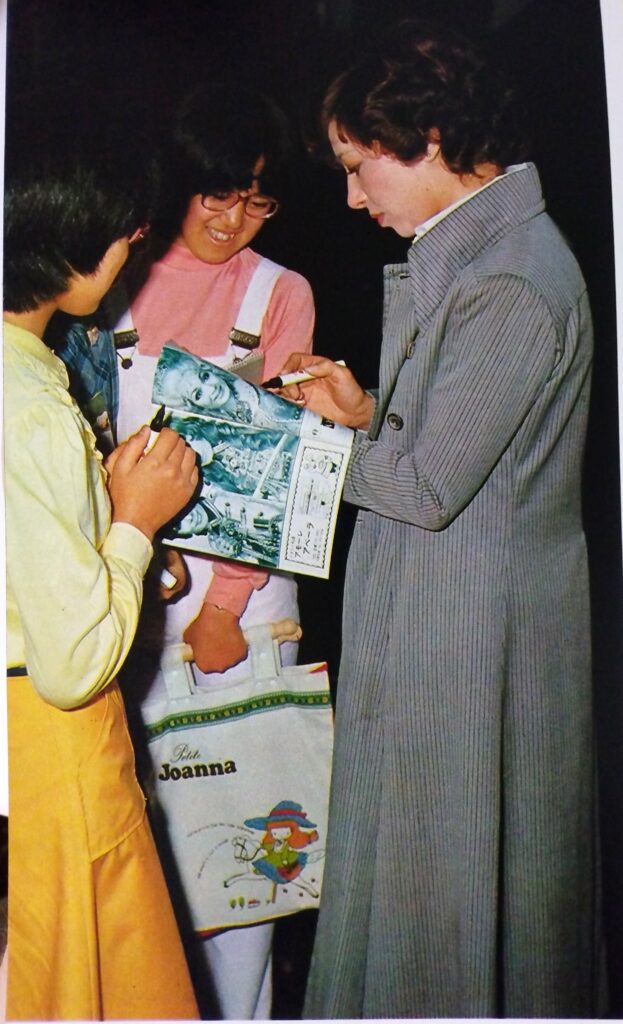This book, which is something of an ‘oral history’ of Takarazuka’s Rose of Versailles adaptations, was published by Ascom in late 2005, and features chronological accounts from otokoyaku who had performed in the franchise from its first origins through the 2001 productions. Since the book is derived from transcriptions of interviews taking place often many decades after the fact, there may be discrepancies between accounts.
Please note that the term appearing through the text as ‘theatre-comic’ is translated from the Japanese term gekiga [劇画]. Although this term is described as applying to mainly male-oriented comics in most English-language sources, this not accurate. The definition of this word changed to also include sweeping, romantic female-oriented works with Rose of Versailles being arguably the most famous of theatre-comics. Takarazuka even published its own magazine of theatre-comics in the 1970s.
Chapters have been split in two to make them more readable without too much scrolling to reach the explanatory footnotes. Some paragraph breaks have also been added for ease of reading in English. I have also included some images printed in the book as well as sourcing many other archival images to illustrate the text.
Installments will be posted every two weeks, with some breaks if the next chapter is not complete.
(Please note some images used in this chapter are from photographs rather than scans; I hope to replace these with better quality scanned versions later.)
Ootori Ran

1946 – Born January 22, in Hyogo Prefecture
1964 – Entered Takarazuka, debuting with Tale of the Flower Village
1971 – Became Star Troupe Top Star with Meadow of Stars1
1976 – Played Fersen in The Rose of Versailles III
1978 – Played Rhett Butler in Gone with the Wind
1979 – Retired from the Takarazuka Revue with The Midnight Sun, My Love
Other notable works:
Brigadoon, For Whom the Bell Tolls, Yu the Beautiful, The Man from Algiers, etc.
Post-retirement activities:
She has focused on stage performance, winning numerous awards and appearing in shows such as Sweeney Todd, Chicago, Man of La Mancha, etc. She also serves as company leader in Takarazuka OG performances such as Sakura Matsuri Tanuki-Goten and Sakura Emaki Tanuki-Genji.
Is Stefan alright?
No matter how I looked at it, I just couldn’t picture myself as Oscar. After all, with this height, I’d be an Oscar even bigger than her Andre. We couldn’t have that, right? (laughs)
At that time, the first Berubara production was such a huge success, a massive hit, that it was decided each troupe would perform it. Oscar was an especially popular character, but if I was going to play Oscar, there was nobody who could be Andre (laughs), so because of that, how it ended up was, well, how about if I played Fersen?

So then the Fersen and Marie Antoinette Edition, which focuses on Fersen, was created for me. And in Flower Troupe it would be Oscar and Andre Edition. In that way, many different versions were created to fit the different stars, and I think this might be one of Berubara’s unique attributes.
Ikeda Riyoko’s Rose of Versailles is a grand historical romance with a huge variety of characters, but all of them are written so distinctly, and no matter where you look in the story you’ll find such a moving drama. I think that since, due to this, all the different ‘editions’ were created, each filled with these separate human dramas, it’s another proof of how amazing the original work is.
But in actuality, it seems that at the start there was a lot of opposition to the staging of Berubara. The reason for it, though it might be unbelievable at this point, is because Oscar is a crossdressing beauty. Basically, in Takarazuka, while women are playing male roles so they are all crossdressing beauties, but Oscar is herself a woman, so they said that Oscar’s crossdressing would be an issue. On the other hand, those in support said that the crossdressing beauty Oscar was the most perfect character ever for Takarazuka…
Apparently there was also a lot of opposition from people who thought it might ruin the image created by Ikeda’s theatre-comic. But apparently Director Ueda Shinji was reading the comic as it was published in Monthly Margaret, and eventually, he concluded that the story of Rococo queen Marie Antoinette would be perfectly suited for Takarazuka.
Back then, notably, starting with Director Ueda, everyone in the company was reading the original Berubara comic. Of course the cast members, but also Lower Students, Upper Students2, and even the venerable senior actresses who had never shown any interest in theatre-comics before, and it was a bit funny to see them all enthusiastically reading it (laughs). It’s a scene I’ll never forget.
Because of this situation, the intense debate between the pro- and anti-adaptation sides continued until the curtain opened on the show’s first performance, but the end result was “This is Takarazuka!” I wonder if even Ikeda was startled by how perfect it was? (laughs) And by now, it’s a staple the same as The 47 Ronin is for kabuki.

As for the original work, of course I also read it, and I got totally into it! Andre loves Oscar, Oscar loves Fersen, Fersen and Marie Antoinette share a mutual love, but Antoinette also has the King… This sort of beautiful, pure love triangle—love square story, this sort of pure-hearted drama, I think is something that isn’t seen as much in Japanese drama nowadays… Moreover, Berubara is set among the upheaval of the French Revolution, and their love surpasses station or nationality, such that they don’t care even if they sacrifice themselves. That huge scale would be unbelievable in this tiny island country (Japan), so I think that is one of the appeals of Berubara.
So, finally, it was decided that I would play Fersen, and basically, being Fersen felt amazing! I was loved by both Oscar and Antoinette, after all (laughs).
The climactic scene, where he goes to rescue Antoinette from prison…even though it’s been 30 years now, I still can’t talk about it without tearing up. Fersen’s courage at going to save her, ignoring the risk to himself, and then though she is moved by his love, though he came all the way to save her…there, see, I’m crying… (cries) And then Antoinette rejects him with “Because I am…the Queen of France!”… If I put myself in Fersen’s emotions, it’s so painful and heartwrenching, so even now the tears well up like this.
Back then, even when I was performing the show onstage, each and every time I’d end up tearing up during that scene, so I’d be struggling to get the lines out while crying. I think in the end, that scene left the biggest impression with me because of how painful it was.
To tell the truth, me and the Antoinette from back then, Hatsukaze Jun, are still Antoinette and Fersen to each other even now (laughs). There’s that doll named Stefan in the last scene, right? So, once Hatsukaze retired and got married, and had a baby, I sent her a message saying “Is Stefan alright?” And a reply from her came back saying “Monsieur Fersen, we are both well.” (laughs)
After that, even when we talk on the phone, it’s always “Is Stefan alright?” “Yes. He has just started kindergarten.” And once we started using email, hers come signed ‘Antoinette <3’!
That’s how deep the memories of Berubara are for those of us who performed in it. More than just memories—the difference between ‘before’ and ‘after’ Berubara, is so huge that it’s as if the world was flipped upside down. In Takarazuka prior to Berubara, the only people who went to the trouble of buying a ticket and coming all the way to the theatre were the core group of fans, as well as tourists and students on field trips. It was a pretty nerdy activity.
In fact, when I went on regional tours, people would say “Oh, that’s the Hi-CROWN person.” (laughs) Because at the time, I was in a commercial for Morinaga’s Hi-CROWN chocolates. Basically, back then, there were so many people who still didn’t know what Takarazuka was, so I wasn’t widely known as a Takarasienne. However, once the ‘Japanese Berubara Boom’ happened, Takarazuka obtained a national constituency.
As proof of that, where I used to get three fanletters a day, it turned into three hundred letters a day. The people waiting outside the dressing room door changed too: before Berubara, as expected, there would only be a few people, and they were also the type of fans who just wanted to wait quietly at a distance to catch a glimpse of the person they liked, but after Berubara there was a huge transformation. Everyone would rush up so close, ‘Wah~!’, it was like they desired a direct contact.
For example, if I left the dressing room wearing a fur coat, I’d be making a terrible mistake. The moment I left the dressing room everyone would charge at me, and in the time it took me to walk to my car all the fur would be stripped off (laughs), so once I got into my car wearing a hairless skin coat (laughs).
And speaking of cars, the fans would push towards the vehicle with such force that the side mirrors would always end up twisted (laughs). Therefore, ever since then, I don’t trust the side mirrors, and my habit is to look only at the back mirror and never the side mirrors while I’m driving (laughs).

As for signatures, I can’t exactly write if people are running up to me screaming, right? I really did want to write “Ootori Ran” properly, but I’d be in such a panic all I could write with the pen would be the character ‘no’ [ノ]. The fans were delighted with that earthworm scribble all the same, but I still felt bad about it.
“What is this phenomenon!?” At the time, every day was so unusual that I had no idea what I should be doing, so it felt as if I was floating on a fluffy cloud.
But I was happy, of course. After all, the world I lived in was being noticed by the whole of the country. Not just Takarazuka fans came, but theatre-comic fans and average people, and I think that also means we didn’t ruin the image people had from the original work.
Takarazuka’s stage adaptation made the original work real, and by borrowing the power of music, drew out even more of the allure of the theatre-comic. Or perhaps in reverse, it felt as if it was breathing life into the original work. Maybe she’ll get angry with me for saying this kind of thing— (laughs) —but if Ikeda was also happy with it I’ll be delighted.
Of course, both I, and Takarazuka, are grateful to Ikeda. After all, because of Berubara, the entire history of Takarazuka was changed.
1 – Once again, the exact start of the initial Top Star runs is ambiguous.
2 – The terms for students in their first/second year in the Takarazuka Music School, respectively.
